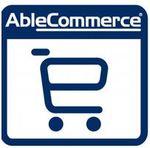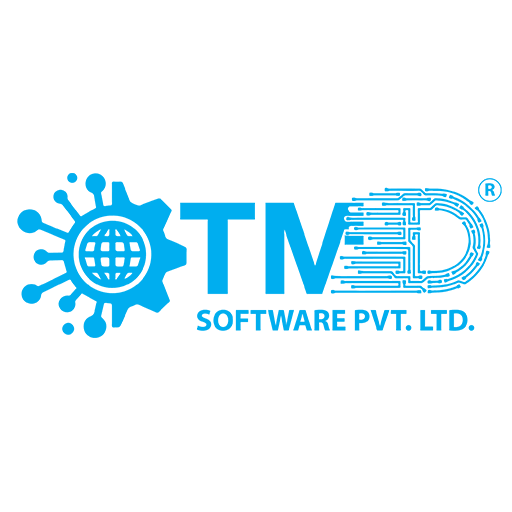Benefits Of Using ECommerce Tools
eCommerce, or electronic commerce, has completely changed how companies run and has become a necessary component of our everyday life. Businesses now need to have a strong online presence and the appropriate eCommerce tools in order to thrive in the fiercely competitive industry as more and more customers shop online. eCommerce tools are a collection of programs or software created especially to help online businesses by automating and simplifying a number of processes related to online selling, including marketing, payment processing, inventory management, and customer relationship management.
The following are some advantages of utilizing eCommerce tools:
1. Cost-Effective: Rent, utilities, and employee wages are just a few of the hefty expenses associated with opening a physical store. eCommerce technologies, on the other hand, provide a financially viable option for companies of all kinds, enabling them to expand their customer base without requiring a physical storefront.
2. Increased Productivity: Automating a number of processes, including order fulfillment, inventory control, and payment processing, is one of the main advantages of utilizing eCommerce technologies. This lowers the possibility of human error and increases efficiency, which eventually improves consumer happiness.
3. Smooth Customer Experience: ECommerce tools give customers a simple and easy way to make purchases. With just a few clicks, users can browse products, make payments, and track orders all of which improves their overall experience and makes it convenient.
4. Data Analytics: ECommerce platforms give companies useful information about inventory levels, sales patterns, and consumer behavior. Making data-driven decisions with this information can enhance business plans and increase revenue.
5. Increased Reach: Businesses can reach a worldwide audience by using eCommerce platforms, which do not restrict them to a specific geographic area. This gives companies the chance to grow their clientele and boost revenue.
6. Integrated Marketing: With built-in marketing features like email marketing, social network integration, and search engine optimization, many eCommerce platforms enable companies to successfully market their brands and goods and expand their customer base without incurring extra expenses.
7. Scalability: A company's needs evolve as it expands. Because eCommerce systems are scalable, companies may quickly add or remove features and functionalities to suit their needs.
Important Factors To Consider While Purchasing Ecommerce Tools?
In order to make an informed choice, consumers need take into account a number of crucial factors while buying eCommerce equipment. These important factors will assist you in choosing the ideal tools for your particular requirements, regardless of whether you are a major organization in need of sophisticated eCommerce solutions or a small business owner wishing to open an online store.
1. Platform Compatibility: Making sure eCommerce technologies work with your existing website or platform is the first step in selecting them. Verify compatibility with your content management system, eCommerce platform, and any further third-party integrations you may have.
2. Features And Functionality: The particular features and functionality provided by the eCommerce tools should be taken into account next. List the qualities that are most important to you and compare them across several possibilities. Inventory control, payment processing, delivery choices, customer service, and marketing tools are a few typical aspects to search for.
3. Scalability: Your ECommerce requirements will expand along with your business. Selecting technologies that are scalable and flexible enough to meet your changing demands is crucial. Seek solutions that allow you to add features or upgrade as your company grows.
4. User-friendly interface: In ECommerce, user experience is important for both you and your clients. To make it easier for you to manage and for your consumers to explore and make purchases, look for solutions with a simple and user-friendly design.
5. Security: Any online firm must prioritize security due to the increase in cyberthreats. Verify that the eCommerce tools you use have strong security features in place to safeguard both your website and client information.
6. Cost: There are many different price points for eCommerce solutions, ranging from free to quite costly. To choose the most economical choice for your company, take into account your spending limit and the characteristics you require. Remember that purchasing high-quality tools might ultimately result in time and cost savings.
7. Customer Support: You may inevitably run into technical difficulties or require help when using eCommerce technologies. To make sure you have assistance when you need it, look for solutions that provide dependable and accommodating customer service.
8. Reviews And Comments: Read reviews and get comments from other customers before buying anything. This can assist you make a decision by providing you with insightful information about the benefits and drawbacks of various eCommerce tools. When buying eCommerce products for your company, you may make an informed choice by taking these aspects into account. To determine which choice best suits your demands and budget, don't forget to do extensive research and evaluate your possibilities.
What Are The Key Features To Look For In Ecommerce Tools?
It is crucial to take into account a number of criteria while looking for the ideal eCommerce solution for your company in order to make the best investment possible. The following are the main characteristics to search for in eCommerce tools:
1. User-Friendly Interface: Any eCommerce solution must have a user-friendly interface to facilitate both you and your clients' navigation and use. Seek out products that are easy to use, have a neat and orderly layout, and can be customized to fit your identity.
2. Mobile Capabilities: Having an eCommerce solution that is mobile-friendly is essential in the current digital environment. Customers are increasingly making purchases using their cellphones, so you need a solution that can work with various devices and provide a seamless shopping experience.
3. Payment Choices: To meet your clients' expectations, a smart eCommerce solution should provide a range of payment choices. To guarantee the security of transactions, it should also have dependable and secure payment gateways.
4. Inventory Management: The success of any eCommerce company depends on effective and efficient inventory management. Seek out solutions that offer integration with your current inventory management system, backorder management capabilities, and inventory level tracking.
5. Marketing And SEO Tools: Your eCommerce platform should include integrated marketing and SEO tools to draw in and keep clients. To increase the visibility of your website, you can use search engine optimization tools, discount and coupon codes, and email marketing.
6. Integration Capabilities: Take into consideration investing in an eCommerce product that can easily interface with your current accounting, shipping, and customer relationship management (CRM) systems. By doing this, you can avoid wasting time and energy manually moving data between systems.
7. Customer Assistance: When utilizing any technology, it is essential to have access to trustworthy customer assistance. To make sure you can receive help when you need it, look for solutions that provide a variety of support methods, including phone, email, and live chat.
8. Analytics And Reporting: You must have access to precise analytics and reporting in order to monitor the performance of your eCommerce business and make well-informed decisions. To assist you in making data-driven decisions, look for solutions that provide real-time statistics on traffic, sales, and consumer behavior. You may make an informed and strategic choice for your company by taking into account these important eCommerce tool features. Don't forget to investigate and contrast several tool possibilities to choose which one best suits your needs and price range.
What Is The Level Of Customization Available In Ecommerce Tools?
Any company trying to build an online presence and increase sales needs eCommerce tools. Understanding the degree of customisation offered is crucial when deciding which eCommerce solution to choose. The success of your internet business as a whole may be significantly impacted by this important factor. eCommerce tools can offer a wide range of customisation options. While some tools give a lot of freedom, others have few possibilities. Selecting a solution that supports your business objectives and thoroughly evaluating your customization requirements are crucial.
Typically, entry-level eCommerce platforms provide with a selection of pre-made themes and little customization choices. These tools are popular among startups and small enterprises since they are frequently easier to use and more reasonably priced. However, for larger organizations with specific branding and design needs, these solutions could not provide adequate customisation.
Advanced eCommerce technologies, on the other hand, offer a plethora of customization choices that enable companies to build genuinely distinctive online stores. This includes the flexibility to alter the functionality, layout, and design to suit your unique requirements. Although these technologies are more costly, they can provide a substantial return on investment for companies that need a high degree of personalization.
The technological expertise needed to modify eCommerce tools must also be taken into account. Anyone without any coding experience can easily build their store with basic level tools, which frequently feature a drag-and-drop interface. For advanced level tools to fully leverage their customization options, some technical knowledge or coding may be necessary. Selecting a tool that is compatible with your technical skills is crucial.
Additionally, third-party connectors and plugins are available for many eCommerce systems, providing even more customization choices. By linking with email marketing services or adding social media buttons, these integrations can improve your store's operation. In conclusion, your online business's success can be significantly impacted by the degree of customisation offered by eCommerce solutions.
Selecting a tool that can fulfill your customized demands requires significant consideration. When choosing, take into account the degree of customization, the technical know-how needed, and third-party connectors. You may build a genuinely distinctive and prosperous online store with the correct eCommerce tool.
Which Industries Can Benefit The Most From Ecommerce Tools?
ECommerce technologies are now essential for companies of all sizes and sectors in the current digital era. These technologies offer a one-stop shop for efficiently managing marketing, customer interactions, and online sales. eCommerce tools can help all industries, but some will profit more than others. Let's examine the leading sectors that stand to gain the most from eCommerce tools:
1. Retail And E-commerce Sector: It should go without saying that eCommerce technologies have a lot to offer the retail and e-commerce sectors. Businesses may effectively sell goods, maintain inventory, and set up and run online storefronts with the help of these technologies. E-commerce companies can boost their sales and marketing tactics by utilizing features like consumer segmentation and real-time analytics.
2. Travel And Hospitality Sector: Online booking and transactions have significantly changed the travel and hospitality sector. Businesses in this sector may effortlessly handle their reservations, payments, and client feedback with eCommerce technologies. Additionally, these platforms provide capabilities like upselling and dynamic pricing, which help firms increase their earnings.
3. Healthcare Sector: In order to meet the evolving demands of patients, the healthcare sector has also embraced the usage of eCommerce solutions. These solutions offer patients a smooth and comfortable experience, from online appointment scheduling to buying medical equipment. Additionally, eCommerce platforms are a great benefit for healthcare organizations because of capabilities like telemedicine services and patient data management.
4. Food And Beverage Business: With the growth of food delivery services, the food and beverage business has witnessed a sharp increase in online orders. Businesses in this sector can handle online orders, payments, and deliveries with ease thanks to eCommerce technologies. To enhance the general consumer experience, these solutions also provide features like online menus, loyalty plans, and customer feedback management.
5. Beauty And Personal Care Industry: ECommerce tools have also had a big impact on the beauty and personal care sector. These tools let companies sell their goods online, provide tailored suggestions, and monitor client information for focused advertising. The emergence of subscription-based business models has made ECommerce tools indispensable for companies operating in this sector.
Conclusion
In conclusion, investing in the appropriate eCommerce tools is essential to your online business's success. Prior to choosing a choice, it is crucial to thoroughly assess your needs and objectives. Think about your budget, level of technical skill, and the size and complexity of your company. Give top priority to characteristics like security, customization possibilities, and ease of use while looking for eCommerce solutions.
Seek out platforms that provide a range of templates and plugins along with connectivity with well-known payment gateways. Remember to read other users' evaluations and comparisons and speak with subject-matter experts.
Use demonstrations or free trials to check out the features and suitability of different tools. Keep in mind that selecting the best eCommerce tools is an investment in your company, therefore you should do your research before choosing one. We hope that this buyer's guide has given you the information and self-assurance you need to select the best eCommerce tools for your unique requirements. Enjoy your shopping!






















